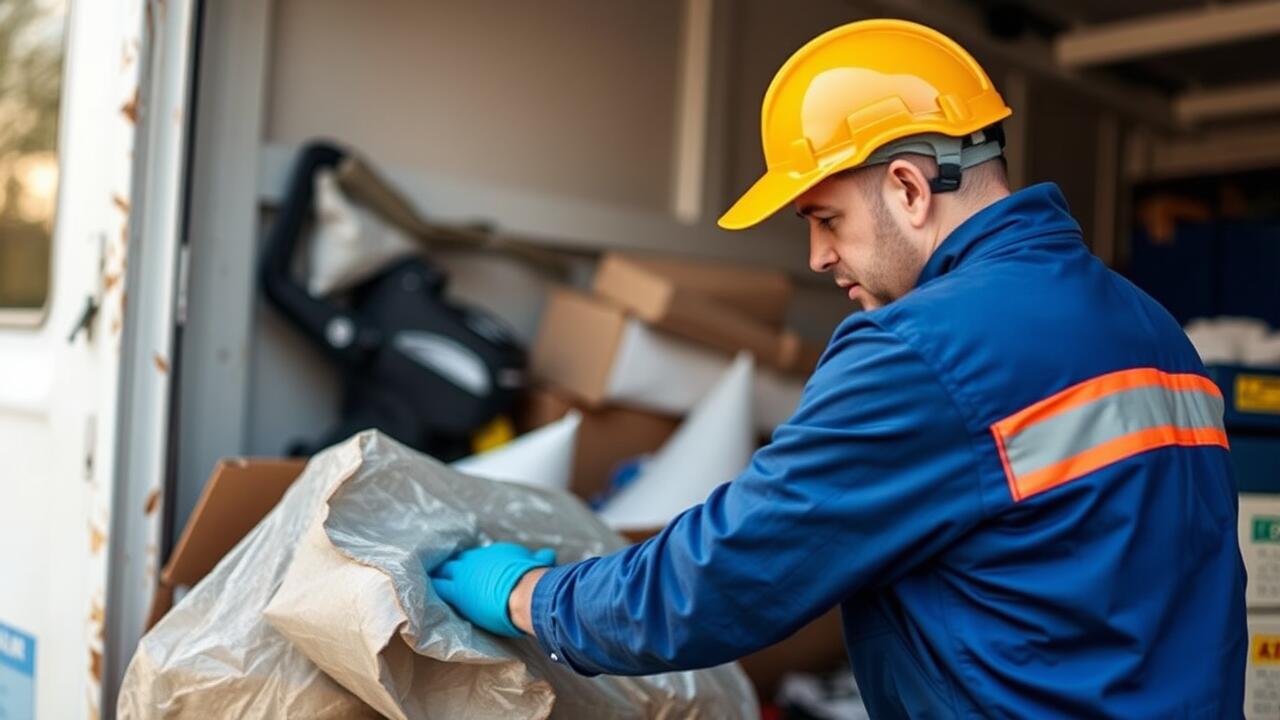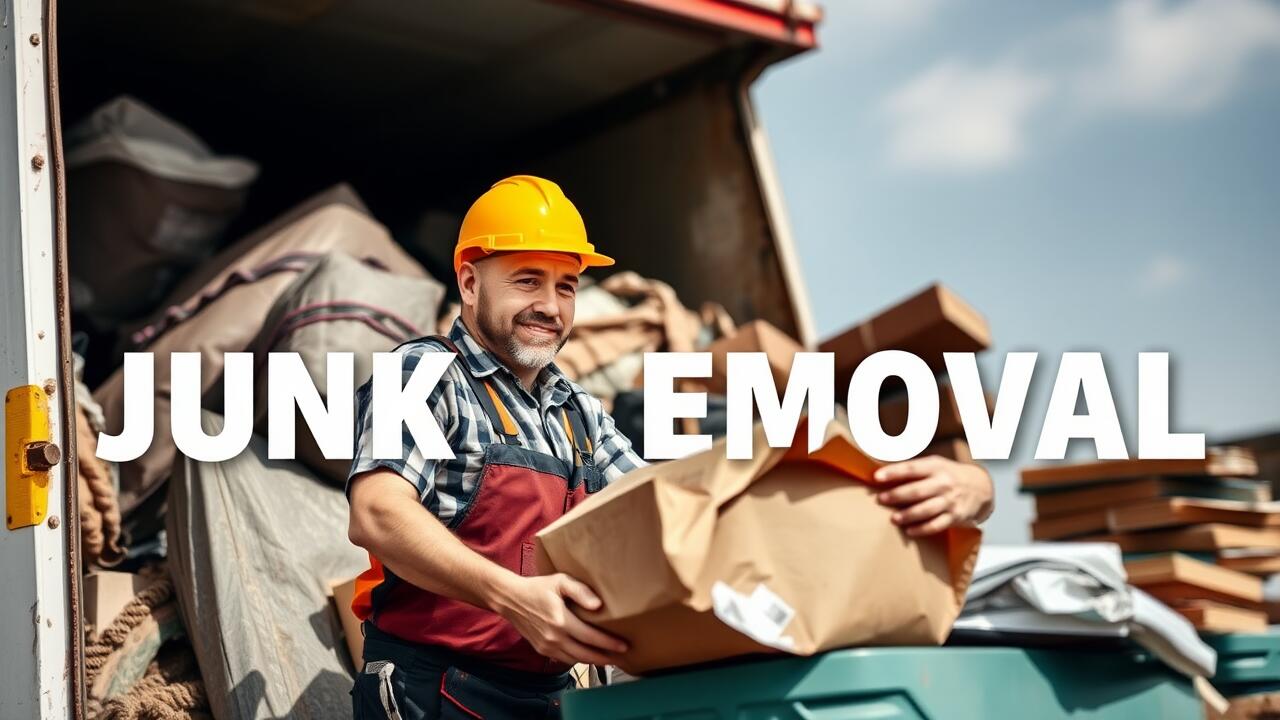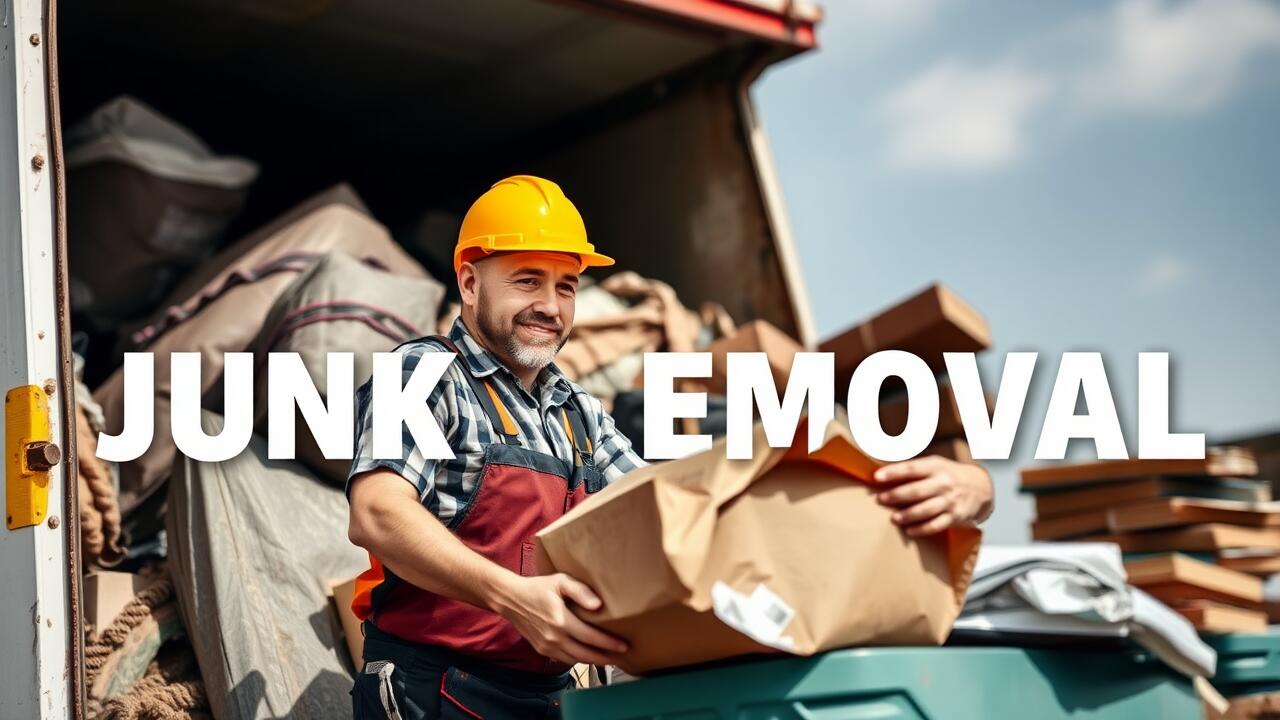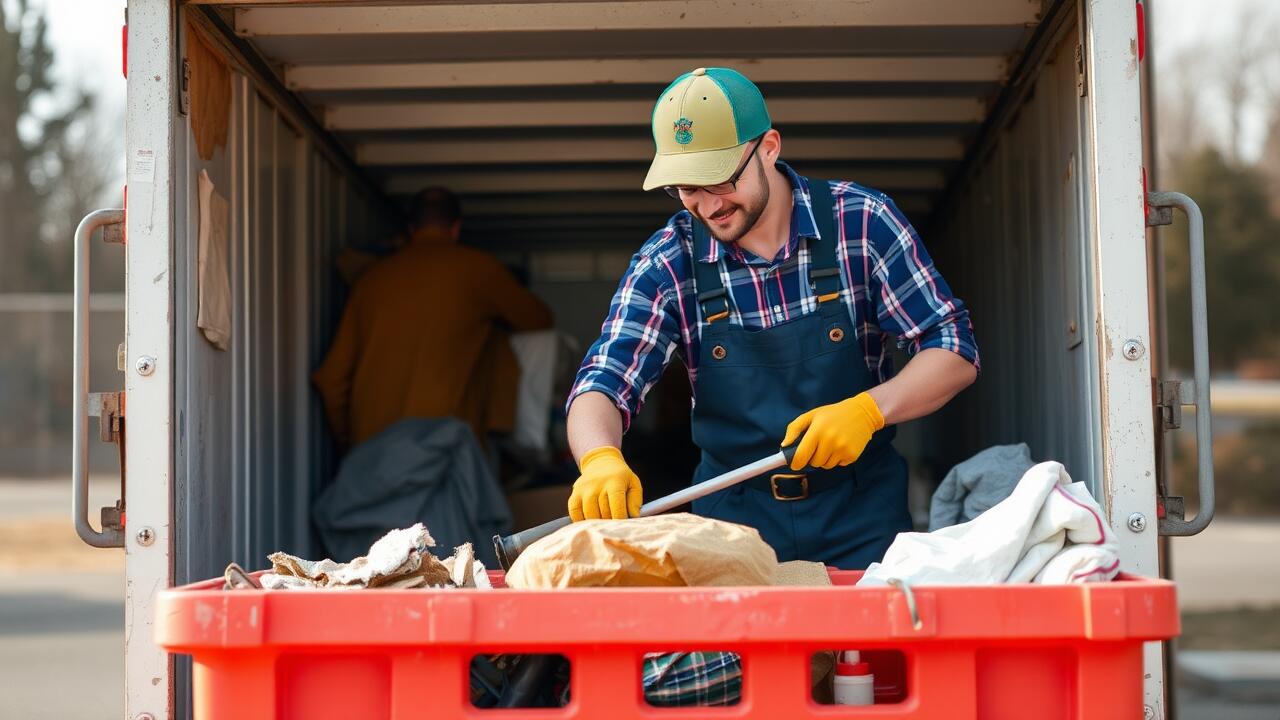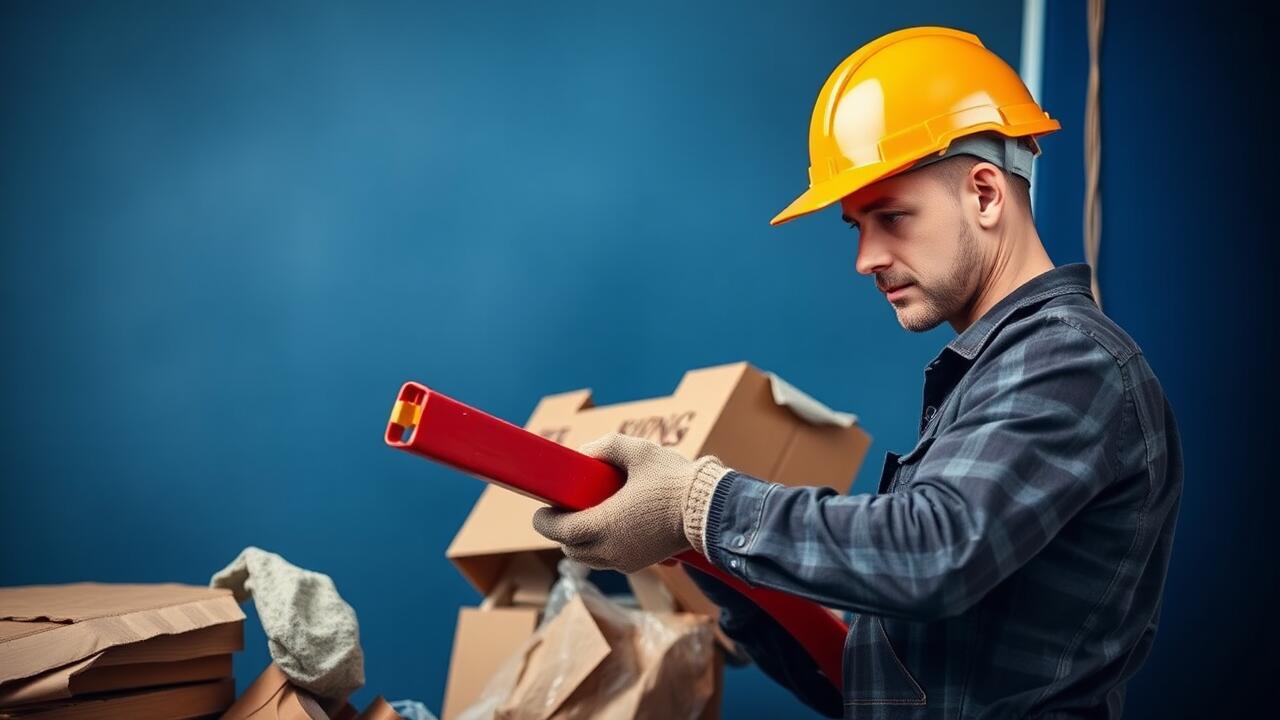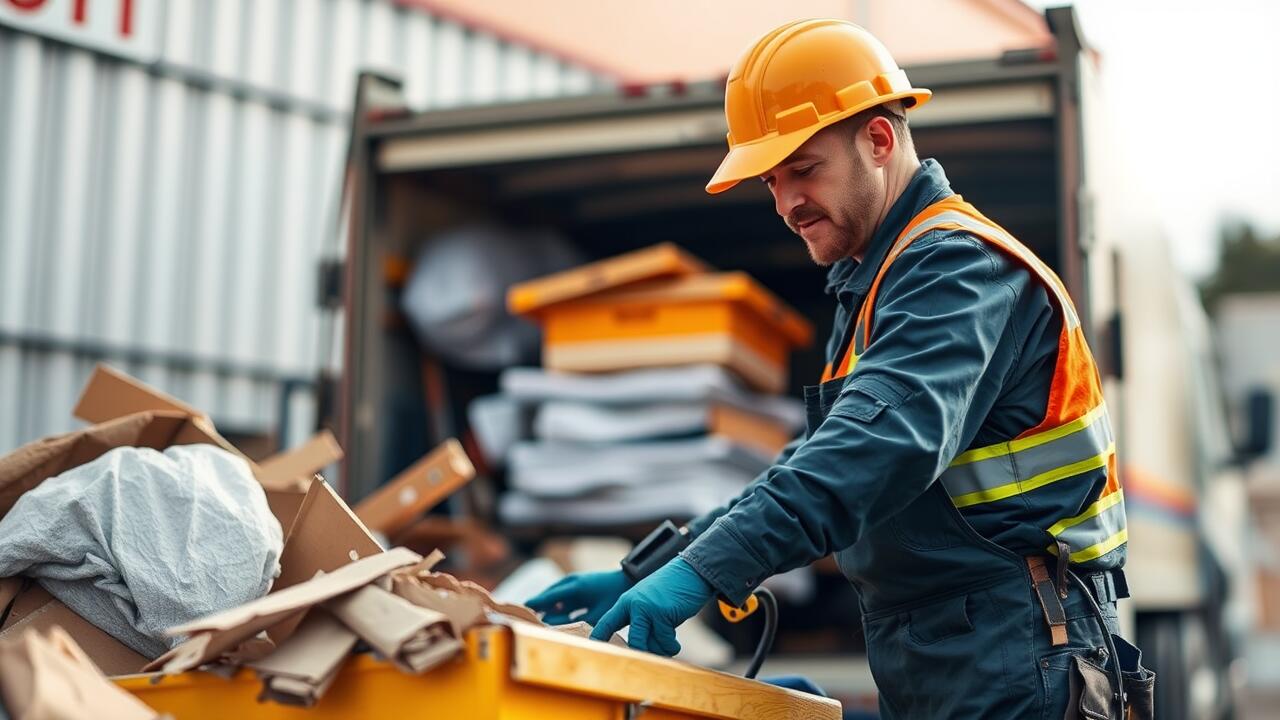
Regulations and Compliance in Debris Disposal
Regulations surrounding debris disposal are crucial to maintaining environmental integrity and public health. Various local, state, and federal laws dictate how construction waste must be managed, ensuring that hazardous materials are safely contained and disposed of. Failing to adhere to these regulations can result in significant fines and legal repercussions for contractors. Familiarity with the specific guidelines relevant to construction debris is essential for compliance. Services like Junk Removal North Mountain, Phoenix, help construction companies navigate these regulations effectively, ensuring proper disposal methods are utilized.
In addition to legal obligations, construction firms must prioritize safety and environmental stewardship in their waste management practices. Many jurisdictions have implemented strict requirements for the recycling and disposal of construction materials, promoting sustainability and reducing landfill contributions. Engaging with professional debris removal services ensures that waste is sorted and processed according to these standards. Companies like Junk Removal North Mountain, Phoenix, not only assist in compliance but also contribute to a greener approach by helping to recycle and repurpose construction waste.
Local Laws Governing Construction Waste
Local laws governing construction waste play a crucial role in ensuring environmental sustainability and public safety. Many municipalities have established specific guidelines that regulate the disposal of debris from construction projects. These laws often include requirements for proper segregation of materials, stipulations for hazardous waste management, and designated disposal sites. Compliance with these regulations can prevent hefty fines and delays in project timelines, making it essential for contractors to stay informed about local requirements.
In cities like Phoenix, companies specializing in junk removal services, such as Junk Removal North Mountain, Phoenix, navigate these regulations for their clients. They help ensure that construction waste is handled responsibly, contributing to efficient waste management practices. By adhering to local laws, these services not only protect the environment but also promote recycling and reusing of materials whenever possible. This approach fosters a cleaner community and helps construction businesses maintain their commitments to sustainability.
Recycling and Reusing Construction Materials
Recycling and reusing construction materials has gained importance in recent years due to environmental concerns and the need for sustainability. Many construction companies now actively seek ways to minimize waste by repurposing materials such as metal, wood, concrete, and drywall. Salvaged materials not only reduce landfill contributions but can also lower project costs, as sourcing reused items often comes at a fraction of the price of new materials.
Organizations like Junk Removal South Mountain, Phoenix, play a crucial role in facilitating the recycling process. They assist contractors and property owners in sorting and collecting recyclable debris from job sites. By partnering with local recycling centers, these services help ensure that valuable materials are diverted from landfills and redirected back into the supply chain. This not only promotes a circular economy but also supports eco-friendly initiatives within the construction industry.
Sustainable Practices in Debris Management
Sustainable practices in debris management are increasingly prioritized within the construction industry. These practices encompass various strategies aimed at minimizing waste and maximizing resource use. Techniques such as sorting debris on-site facilitate the separation of recyclable materials from general waste, thereby reducing landfill contributions. Incorporating salvageable materials into new projects supports a circular economy, promoting environmental responsibility. Effective management not only decreases disposal costs but also enhances a construction company's reputation for sustainability.
In South Mountain, Phoenix, local providers such as Junk Removal South Mountain, Phoenix, contribute to these sustainable efforts by offering specialized services for recycling and waste diversion. They implement programs aimed at processing construction debris in environmentally friendly ways. By collaborating with recycling facilities, these services ensure that materials like wood, metal, and concrete are reused or repurposed whenever possible. Such initiatives reflect a growing commitment within the construction sector to adopt more responsible practices while addressing the challenge of waste management.
Cost Factors to Consider
When considering the costs associated with debris removal services, several variables come into play. The type of materials being disposed of significantly impacts pricing. Heavier materials like concrete or metal typically incur higher fees due to increased disposal and transportation complexities. Additionally, the volume of debris directly correlates with the cost, where larger loads require more resources for removal.
Location also plays a crucial role in determining the expenses. For instance, services such as Junk Removal North Mountain, Phoenix, may offer different rates based on the area's specific regulations and disposal facilities. Transportation distances from the job site to the disposal location are important factors that can increase costs. Understanding these elements allows homeowners and contractors to better budget for debris removal.
Variables Affecting Pricing
Pricing for construction debris removal services can vary significantly based on several factors. The volume and weight of the debris play a critical role; larger and heavier loads often lead to increased costs. Additionally, the type of materials being disposed of can affect pricing, as hazardous waste requires special handling and can incur higher fees. Accessibility to the site also influences costs. If the debris is located in hard-to-reach areas or requires special equipment to remove, this will likely increase the overall price of the service.
Another important factor to consider is the geographical location of the project. Prices may fluctuate depending on local disposal fees and regulations. For instance, companies like Junk Removal South Mountain, Phoenix, may offer competitive rates influenced by the proximity to disposal facilities. Labor costs can also vary based on the region and the complexity of the job, which can lead to differences in pricing across various service providers.
FAQS
What types of debris can construction debris removal services handle?
Construction debris removal services can handle a variety of materials, including wood, concrete, metal, drywall, roofing materials, and more. They often have the capability to manage both hazardous and non-hazardous waste.
Are there specific regulations for disposing of construction debris?
Yes, there are local, state, and federal regulations governing the disposal of construction debris. These regulations often include guidelines for proper disposal methods and may require permits for certain types of waste. It's essential to consult with local authorities or removal services to ensure compliance.
How can I recycle construction materials?
Many construction debris removal services offer recycling options for materials like metal, concrete, and wood. You can also contact local recycling centers or sustainable building material suppliers to learn about their recycling programs and practices.
What factors influence the cost of construction debris removal services?
Several variables can affect pricing, including the volume and type of debris, the distance to disposal sites, labor costs, and any additional services required, such as sorting or recycling. Always request a detailed estimate from the service provider.
How can I ensure I’m using sustainable practices in debris management?
To promote sustainability in debris management, consider hiring services that focus on recycling and reusing materials, implementing proper sorting practices, and adhering to local waste management regulations. Additionally, you can explore options for donating reusable materials or choosing eco-friendly construction practices.
